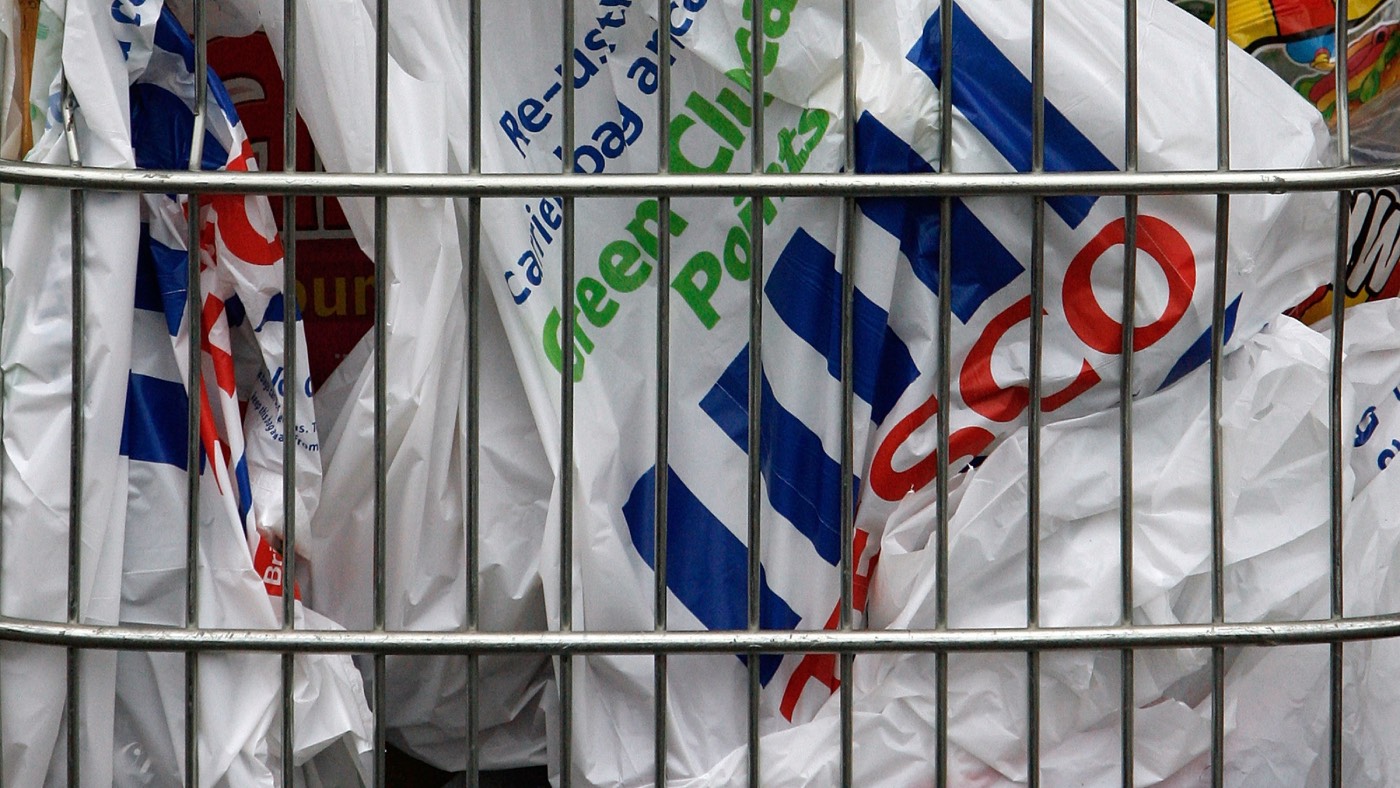Plastic bag usage in supermarkets down 90%
Dramatic drop since charge was introduced in 2015

A free daily email with the biggest news stories of the day – and the best features from TheWeek.com
You are now subscribed
Your newsletter sign-up was successful
Use of disposable plastic bags in England’s main supermarkets has fallen by more than 90% since the introduction of a 5p charge in 2015.
According to new data, the average English shopper now uses just 10 bags a year, compared to 140 before the charge came in.
Asda, Marks and Spencer, Morrisons, Sainsbury's, The Co-operative Group, Tesco and Waitrose sold 549m plastic bags in 2018-19, half the amount sold in the previous year.
The Week
Escape your echo chamber. Get the facts behind the news, plus analysis from multiple perspectives.

Sign up for The Week's Free Newsletters
From our morning news briefing to a weekly Good News Newsletter, get the best of The Week delivered directly to your inbox.
From our morning news briefing to a weekly Good News Newsletter, get the best of The Week delivered directly to your inbox.
Additionally, retailers donated more than £22m to good causes from the proceeds of bag sales last year, bringing the total since the charge was introduced to £169m.
At the time the ban was brought in, “consumers were using more than 7.6bn bags a year, amounting to 61,000 tonnes of plastic”, The Guardian says.
Welcoming the news, Environment Secretary Theresa Villiers said the figures were “a powerful demonstration that we are collectively calling time on being a throwaway society”.
She added: “Our comprehensive action to slash plastic waste and leave our environment in a better state continues to deliver results, with our 5p charge reducing plastic bag sales by 90% in the big supermarkets. No one wants to see the devastating impact plastic waste is having on our precious wildlife.”
A free daily email with the biggest news stories of the day – and the best features from TheWeek.com
According to The Independent, “one million birds and over 100,000 sea mammals die every year from eating and getting tangled in plastic waste.”
Maddy Haughton-Boakes of the Campaign to Protect Rural England said the progress is “yet more evidence of the huge impact that a small financial incentive can have”.
However, she adds, more must be done. “Theresa Villiers must now build on this success by rolling it out to all small shops,” she says. “There is absolutely no reason the charge shouldn’t be applied to all bags, paper as well as plastic, to bring an end to the use of these single-use items altogether.”
-
 Political cartoons for February 14
Political cartoons for February 14Cartoons Saturday's political cartoons include a Valentine's grift, Hillary on the hook, and more
-
 Tourangelle-style pork with prunes recipe
Tourangelle-style pork with prunes recipeThe Week Recommends This traditional, rustic dish is a French classic
-
 The Epstein files: glimpses of a deeply disturbing world
The Epstein files: glimpses of a deeply disturbing worldIn the Spotlight Trove of released documents paint a picture of depravity and privilege in which men hold the cards, and women are powerless or peripheral
-
 The plan to wall off the ‘Doomsday’ glacier
The plan to wall off the ‘Doomsday’ glacierUnder the Radar Massive barrier could ‘slow the rate of ice loss’ from Thwaites Glacier, whose total collapse would have devastating consequences
-
 Can the UK take any more rain?
Can the UK take any more rain?Today’s Big Question An Atlantic jet stream is ‘stuck’ over British skies, leading to ‘biblical’ downpours and more than 40 consecutive days of rain in some areas
-
 As temperatures rise, US incomes fall
As temperatures rise, US incomes fallUnder the radar Elevated temperatures are capable of affecting the entire economy
-
 The world is entering an ‘era of water bankruptcy’
The world is entering an ‘era of water bankruptcy’The explainer Water might soon be more valuable than gold
-
 Climate change could lead to a reptile ‘sexpocalypse’
Climate change could lead to a reptile ‘sexpocalypse’Under the radar The gender gap has hit the animal kingdom
-
 The former largest iceberg is turning blue. It’s a bad sign.
The former largest iceberg is turning blue. It’s a bad sign.Under the radar It is quickly melting away
-
 How drones detected a deadly threat to Arctic whales
How drones detected a deadly threat to Arctic whalesUnder the radar Monitoring the sea in the air
-
 ‘Jumping genes’: how polar bears are rewiring their DNA to survive the warming Arctic
‘Jumping genes’: how polar bears are rewiring their DNA to survive the warming ArcticUnder the radar The species is adapting to warmer temperatures